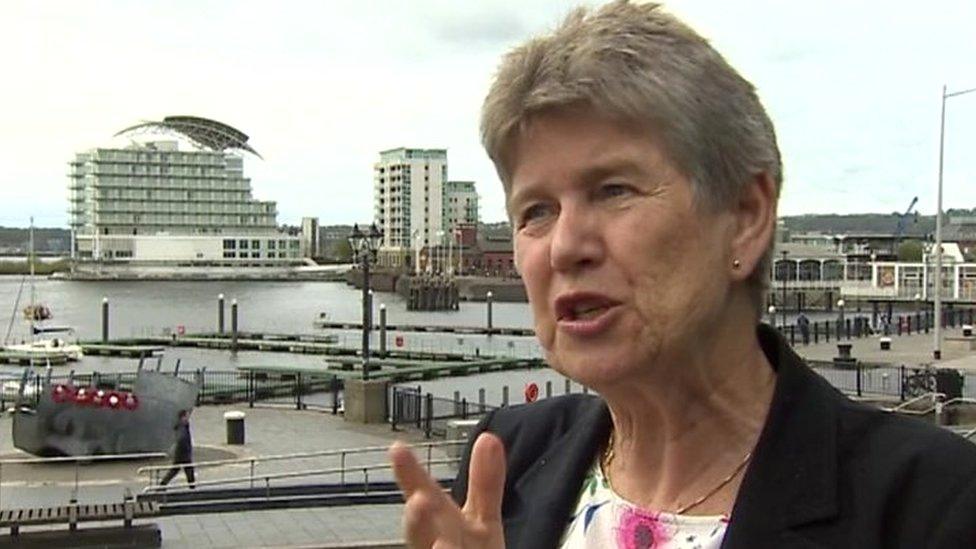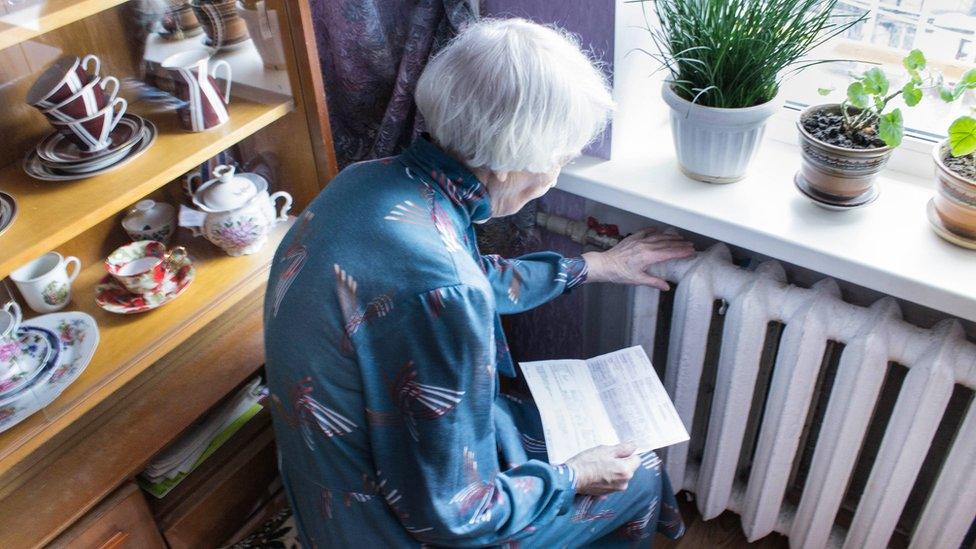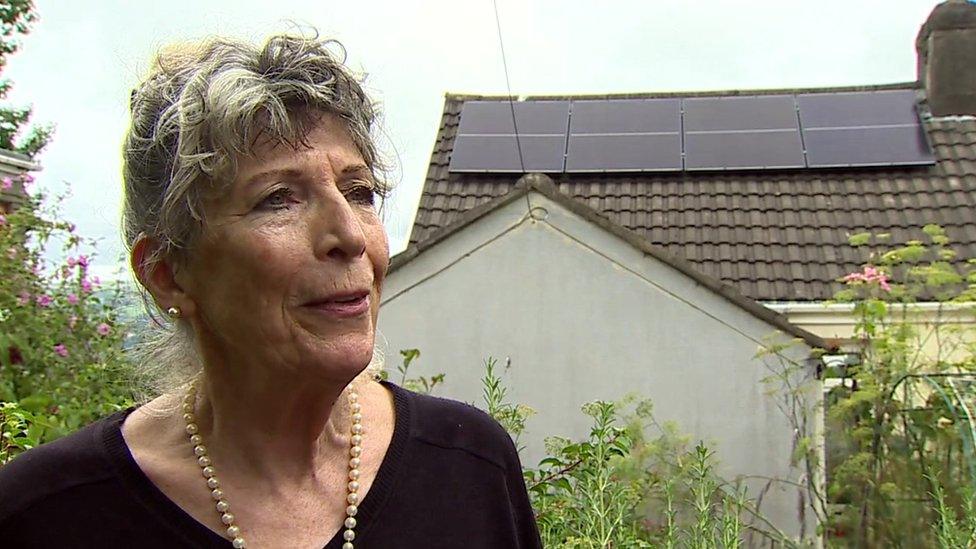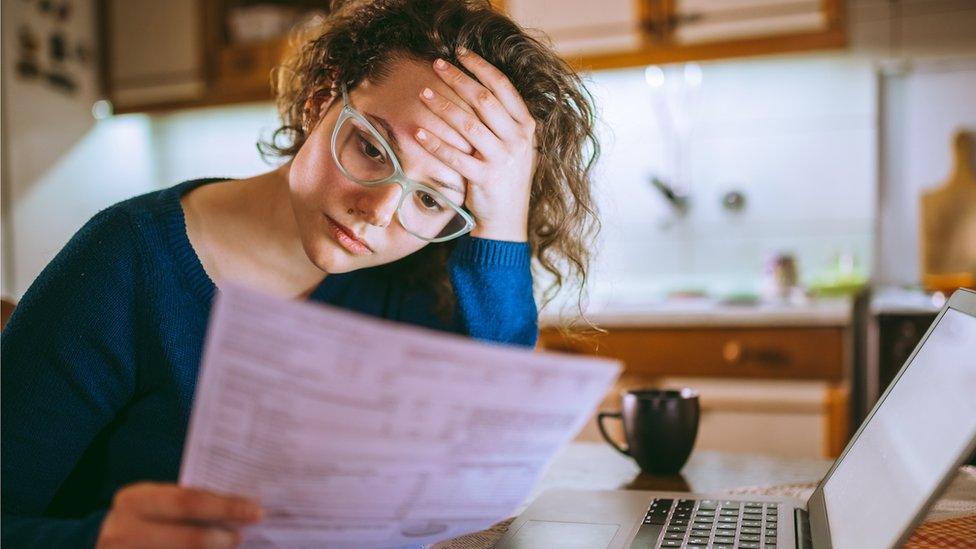Cost of living rise a national emergency, says minister
- Published

Jane Hutt, the Social Justice Minister, called on the UK government to hold an emergency budget
Rising household costs are a national and financial emergency, according to a Welsh government minister.
Jane Hutt said people "should not have to wait" for a new prime minister to be selected before more help was provided.
Boris Johnson said his successor would deliver a "huge package" of support, without saying what that would be.
The energy regulator has hiked the cap on bills by 80%, meaning a typical household gas and electricity bill will rise to £3,549 a year from October.
Liz Truss, who is battling Rishi Sunak to become the next prime minister, has "ruled out" further direct support for everyone to help cover the cost of surging energy bills, sources close to her have told the BBC.
Mr Sunak has said the government "must provide some direct support to everyone".
Social Justice Minister Ms Hutt said: "It's a social emergency, it's a financial emergency but, mostly, it's an emergency for the vulnerable in society."
'Play our part'
She told BBC Radio Wales' Sunday Supplement programme the Welsh government would "play our part" as it had done with a £200 fuel support scheme.
But she called on the UK government to hold an emergency budget.
"It is a cost of living crisis," she said, regarding to rises in other costs such as food and other goods.

Rising energy costs are an 'emergency' for the most vulnerable, Ms Hutt says
"The UK government have got the key responsibility," she said.
"Where are they? We shouldn't have to wait for the new PM."
The UK government has confirmed that households will get the £400 rebate on energy bills, with low income and vulnerable households receiving an additional £650.
Pensioners will also receive £300 along with their winter fuel payment in November, and people on an eligible disability benefit will receive an additional £150.
Related topics
- Published26 August 2022

- Published26 August 2022

- Published28 August 2022

